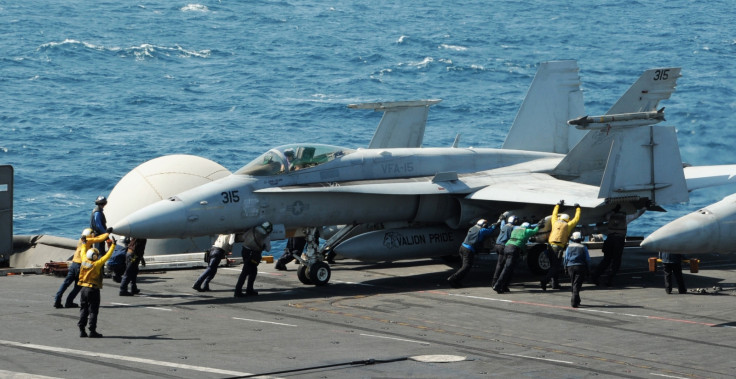Iraq Crisis: Obama Decided on Airstrikes to 'Prevent Benghazi-style Attack'

US president Barack Obama will press ahead with airstrikes on Islamic State (IS) militant targets in Iraq, fearing that the escalating situation could lead to another Benghazi-style attack on US interests in the war-torn country.
The situation in northern Iraq remains highly volatile as the Sunni insurgents, who have established a caliphate, continue to make rapid advances.
Apart from making significant territorial gains, the insurgents have trapped several women and children in mountainous regions as hostages.
Obama is said to have held several discussions with top US officials in Washington and diplomatic missions in Iraq, before deciding to authorise targeted strikes on the militants.
"The situation near Erbil was becoming more dire than anyone expected. We didn't want another Benghazi," a senior Obama administration official told the New York Times.
Several other officials in the defence, intelligence and diplomatic communities are reported to have confirmed a similar stance.
Obama, who was earlier firmly against military intervention in Iraq, was forced to launch airstrikes owing to the growing threat to American interests and also to prevent a looming genocide by the Islamic extremists, the officials say.
In an interview with the NYT, Obama said: "We have an embassy in Baghdad, we have a consulate in Erbil, and we have to make sure that they are not threatened. Part of the rationale for the announcement yesterday (Thursday, 7 August), was an encroachment close enough to Erbil that it would justify us taking shots."
The capture of the Mosul dam, the largest in Iraq, by the Islamists earlier this week is thought to have been a crucial factor in Obama's airstrike decision.
The seizure of the dam gives the Islamists the capability to flood several major cities and also inflict severe damage on the Iraqi capital Baghdad, which houses the US's largest diplomatic facility.
Artillery sites hit
Meanwhile, US jets have pounded several artillery sites in northern Iraq, swiftly followed by dropping of aid for civilians.
The Pentagon said a second round of airdrops of food and water was carried out.
The cargo planes C-17 and two C-130s were escorted by two F/A-18s as they dropped 72 bundles of supplies in the mountainous region around the town of Sinjar, where thousands of people belonging to the ancient religious sect Yazidi have fled.
© Copyright IBTimes 2025. All rights reserved.






















